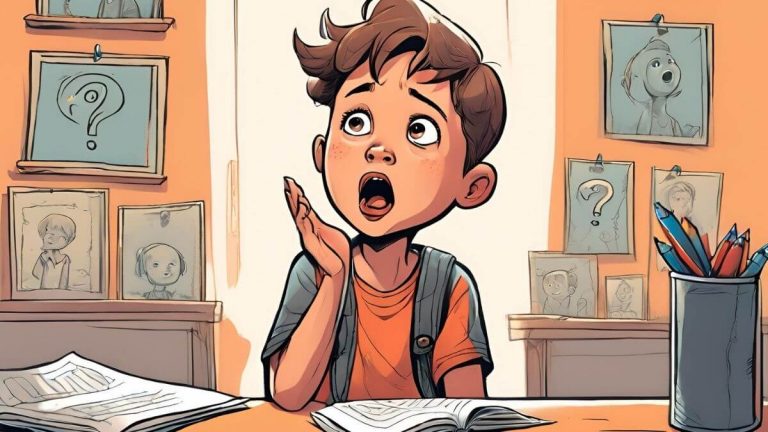The world of a young child is full of wonder and exploration. As they navigate this new landscape, simple questions like “What color is this?” or “Do you want milk?” are essential for building vocabulary and understanding. But what about venturing beyond these basic inquiries? Enter the realm of tricky questions – those playful brain teasers that spark curiosity, challenge assumptions, and ignite a love for learning.
Tricky questions, sometimes called open ended or thought-provoking questions, are more than just riddles. They act as powerful tools for nurturing critical thinking skills and problem-solving abilities in young children.
Why are Tricky Questions Important?
During early childhood development (ages 3-8), a child’s brain is like a sponge, absorbing information and forming neural connections at an astonishing rate. Tricky questions capitalize on this period by:
- Encouraging Critical Thinking: These questions nudge children to move beyond rote memorization and delve deeper. They consider different possibilities, analyze information, and formulate creative solutions.
- Boosting Problem-Solving Skills: Tricky questions often present scenarios that require a child to think outside the box. They learn to break down the problem, identify potential solutions, and choose the most effective course of action.
- Sparking Curiosity: A well-crafted tricky question can pique a child’s interest and ignite a desire to learn more. They begin to see the world as a place full of fascinating possibilities, fostering a lifelong love for exploration and discovery.
- Developing Language Skills: Tricky questions prompt children to articulate their thoughts and explain their reasoning. This not only strengthens their vocabulary but also hones their communication skills.
Examples of Tricky Questions for Early Learners:
The beauty of tricky questions lies in their adaptability. Here are some examples you can use with children of different age groups:
- For Preschoolers (ages 3-5):
- “What would happen if cats could fly?”
- “Can you name something that is wet but not water?”
- “If you could have any superpower, what would it be and why?”
- For Kindergarteners (ages 5-7):
- “Why is the sky blue?”
- “If you could talk to animals, which one would you choose and what would you ask them?”
- “I have five apples, but I give two to my friend. How many do I have left (trick: in my hand)?”
- For Early Elementary (ages 7-8):
- “What would the world be like without electricity?”
- “Can something be big and small at the same time? Explain your answer.”
- “You come to a fork in the road, and one path leads to happiness and the other to sadness. How do you know which one to choose?”
Making Tricky Questions Fun and Engaging:
Tricky questions shouldn’t feel like a test. Here are some tips to make them a fun and enriching experience for your child:
- Keep it lighthearted: Laughter is a powerful learning tool. Use silly voices, act out scenarios, and encourage creative responses.
- Embrace the journey: The focus is not on finding the “right” answer but on the thought process involved. Celebrate their reasoning and encourage them to explain their thought process.
- Turn it into a game: Make it a family activity! Take turns asking tricky questions or create a scavenger hunt with riddles as clues.
- Incorporate them into daily routines: While brushing teeth, ask, “What would happen if toothpaste tasted like chocolate?” Mealtimes can be a great opportunity for tricky questions too.
By incorporating tricky questions into your interactions with your child, you’re not just having fun, you’re laying the foundation for a lifetime of critical thinking, problem-solving, and a love for learning. So next time you’re playing with your child, ditch the yes-or-no questions and embrace the power of the playful puzzle!
Educational Activities for Kids
There are many educational activities and resources available to help you incorporate tricky questions into your child’s learning journey. Here are a few ideas:
- Storytelling with a twist: Read a children’s book together and then pose tricky questions related to the plot or characters.
- Tricky question apps: There are several educational apps designed to challenge young minds with thought-provoking questions.
- Board games with a twist: Look for board games that encourage strategic thinking and problem-solving.
Remember, the key is to have fun and create a safe space for your child to explore their creativity and curiosity. With a little imagination, tricky questions can become a powerful tool for
Also Read:
Reference:


